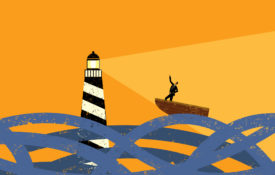-
What Your Favorite Personality Test Says About You
In ancient Greece, the physician Hippocrates is said to have theorized that the ratio of four bodily fluids—blood, yellow bile, black bile, and phlegm—dictated a person’s distinct temperament. The psychologist Carl Jung, in his 1921 book, Psychological Types Visit Page
-
Personality Can Change From One Hour to the Next
Psychologists use personality traits such as extroversion, neuroticism or anxiety as a means of characterizing typical patterns of thought, emotion and behavior that differ from one person to the next. From this perspective, the constituents of personality Visit Page
-

Teaching: How Psychological Scientists Understand the Origin of Callous-Unemotional Traits
By using warmth rather than harshness, parents aid their children’s empathy—and lower their children’s risk for callous-unemotional traits. Visit Page
-

The Science of Starting Up
A burgeoning assortment of psychological scientists is studying the factors that distinguish successful entrepreneurs from those that falter. Their work is particularly salient amid today’s challenging economic climate. Visit Page
-
Happiness Study Reveals a Critical Difference Between Two Types of People
HUMANS HAVE A complicated relationship with happiness. Consider this study on the subject: Scientists found that valuing happiness can lead to less happiness when you feel happy. It’s an emotional rollercoaster fueled by unhelpful expectations. Yet the relationship gets more Visit Page
-

New Content From Perspectives on Psychological Science
A sample of articles on psychologists with lived experience of psychopathology, resilience to stressors, the evolutionary value of warmth, and biases and validity in graduate-school admissions. Visit Page

